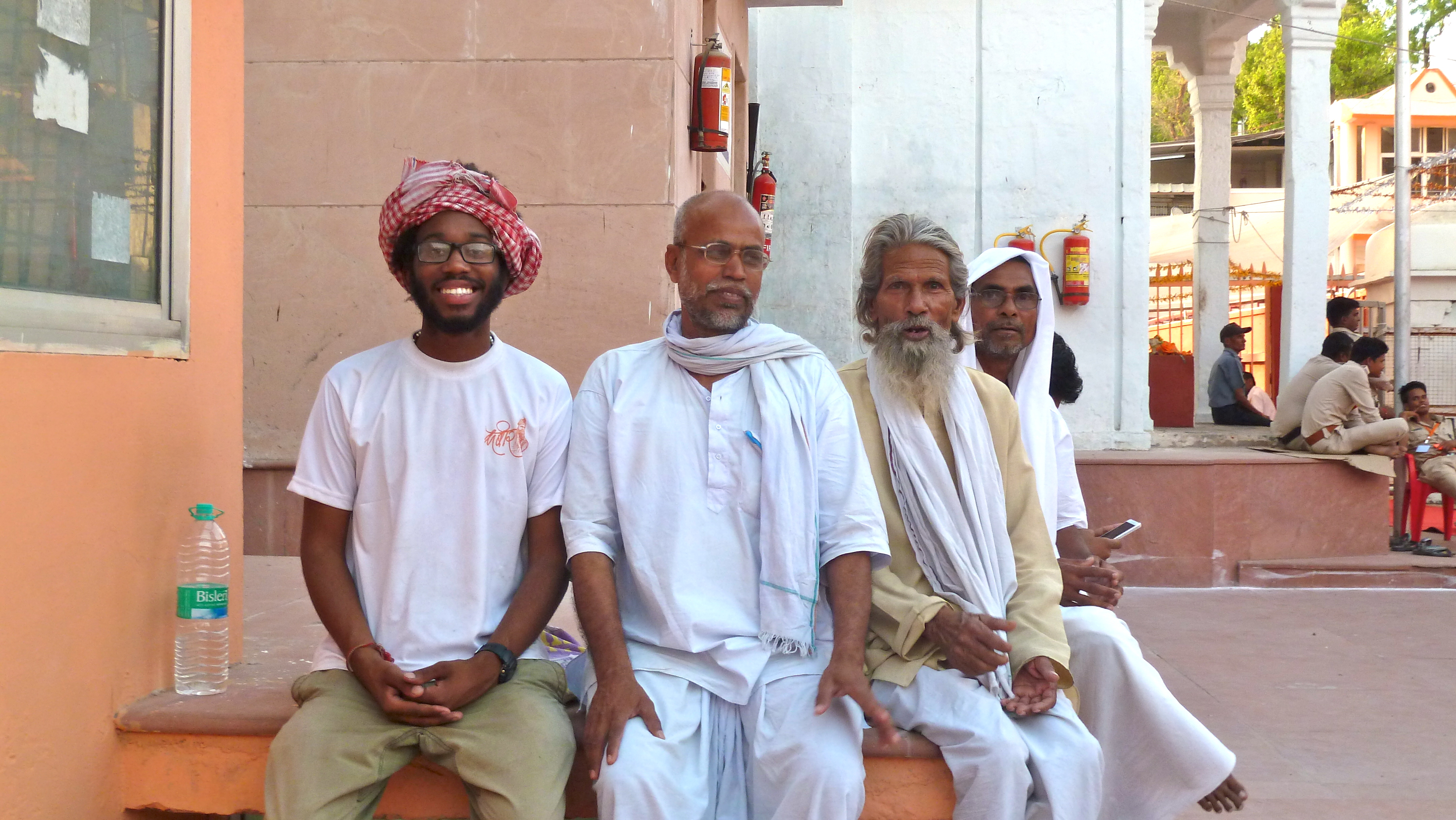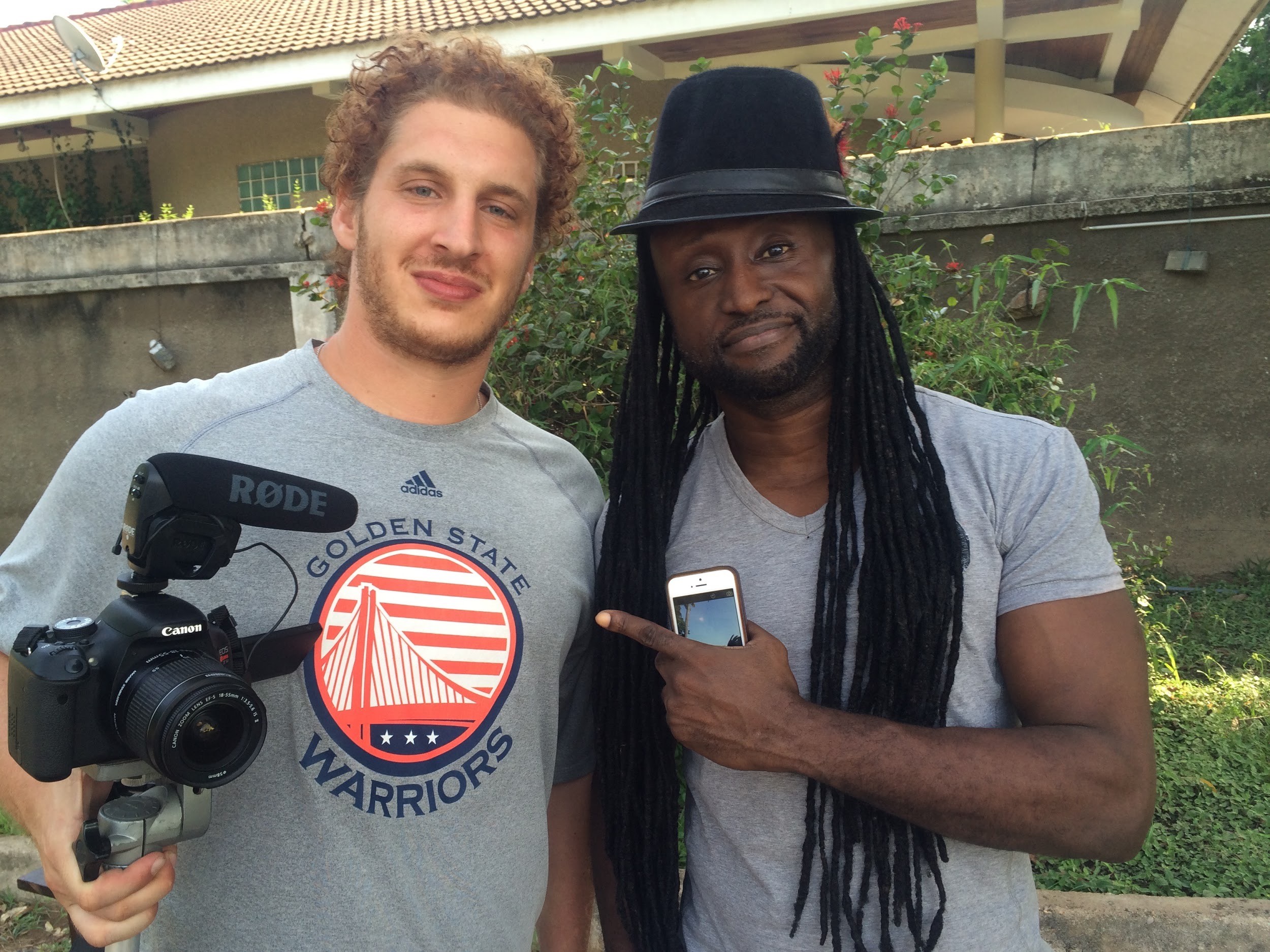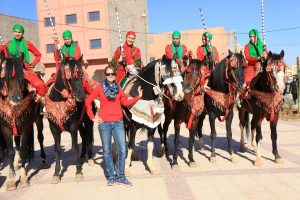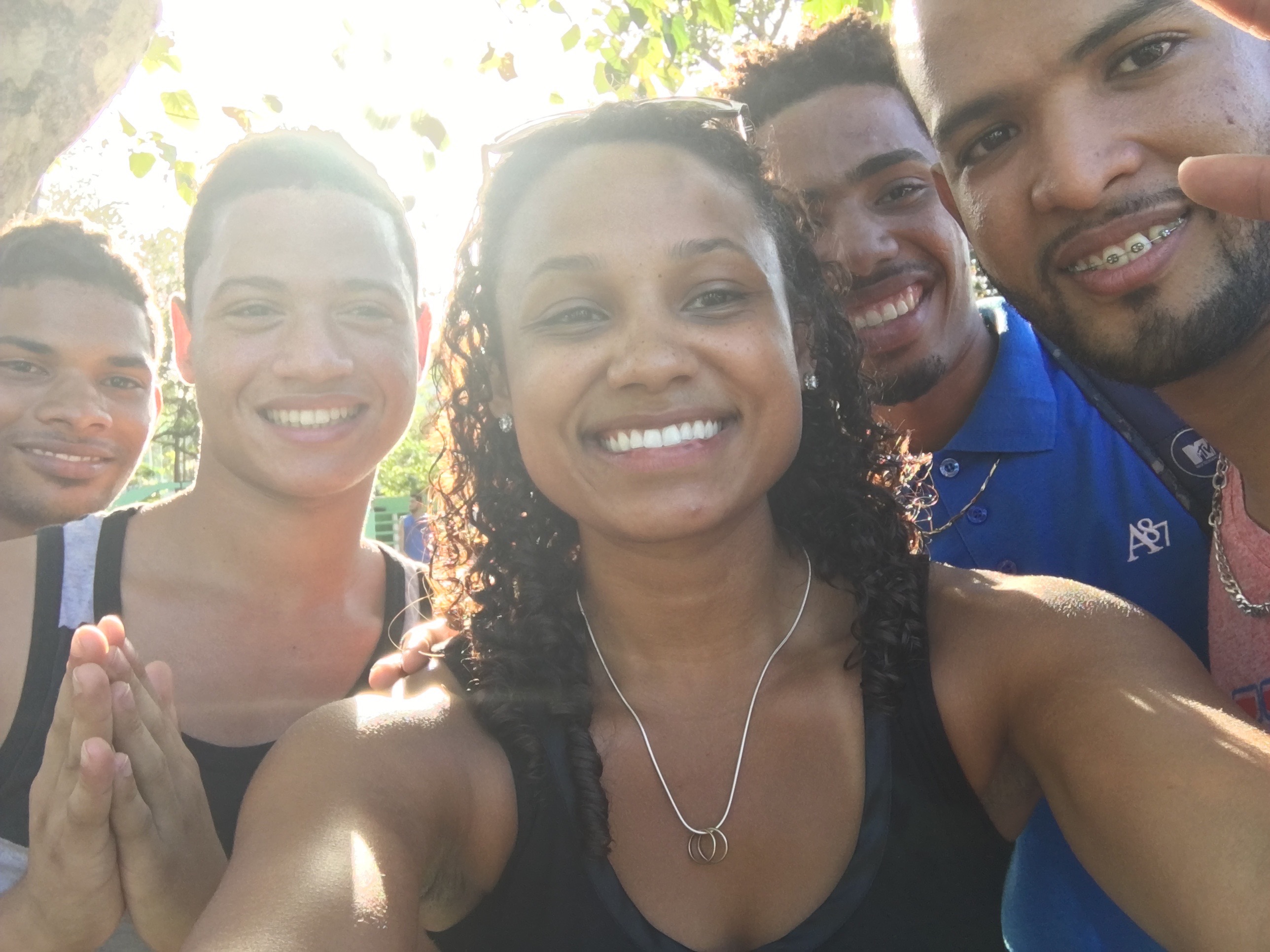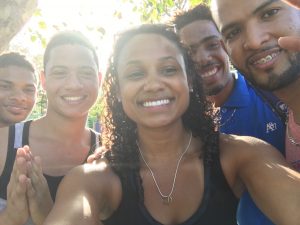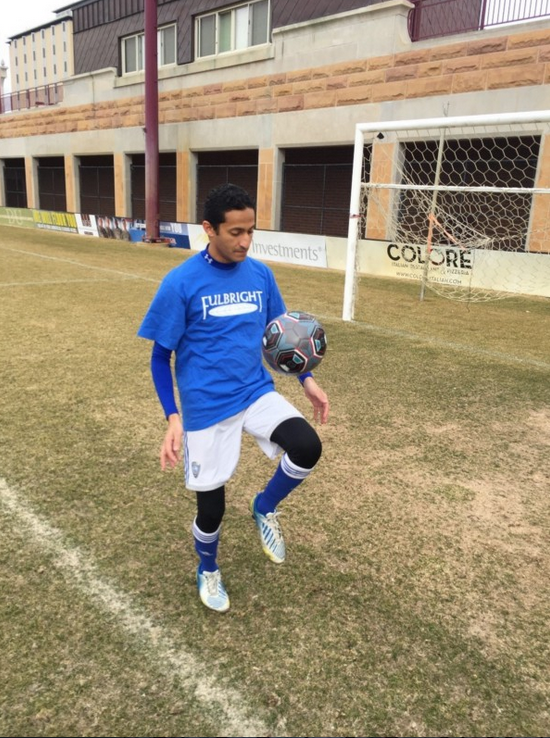 Growing up, I started playing soccer in my neighborhood. We didn’t have proper soccer fields or uniforms, but we enjoyed playing with friends. Since that early beginning, I’ve always enjoyed playing soccer wherever I am. Before becoming a Fulbrighter, I took English classes in the UK, where I played with my classmates. Now, here at the University of Denver, I am the soccer team captain.
Growing up, I started playing soccer in my neighborhood. We didn’t have proper soccer fields or uniforms, but we enjoyed playing with friends. Since that early beginning, I’ve always enjoyed playing soccer wherever I am. Before becoming a Fulbrighter, I took English classes in the UK, where I played with my classmates. Now, here at the University of Denver, I am the soccer team captain.
Sport is a unique way of connecting with people who have similar interests. I made many friends from different parts of the world including the United States, Brazil, Norway, Nigeria, Iran, Chad, India, and Nepal by playing soccer in Denver. My soccer teammates are special friends to me, with whom I feel we have many things in common. I think soccer is the most common sport in the world and many students love to play it, which makes it a great tool of cultural diplomacy that connects people from different nations and cultures.
My friends here in Denver have taught me that in America, football is not soccer. I think everywhere else in the world, people call it football, but Americans call it soccer. This has not only taught me about American culture but others as well. I always chat with many of my teammates about soccer in their home countries and about other cultural, social, and political topics. They also ask me about the Arab world, and I try to answer any questions they have. On our team, we’re constantly participating in cultural exchange.

